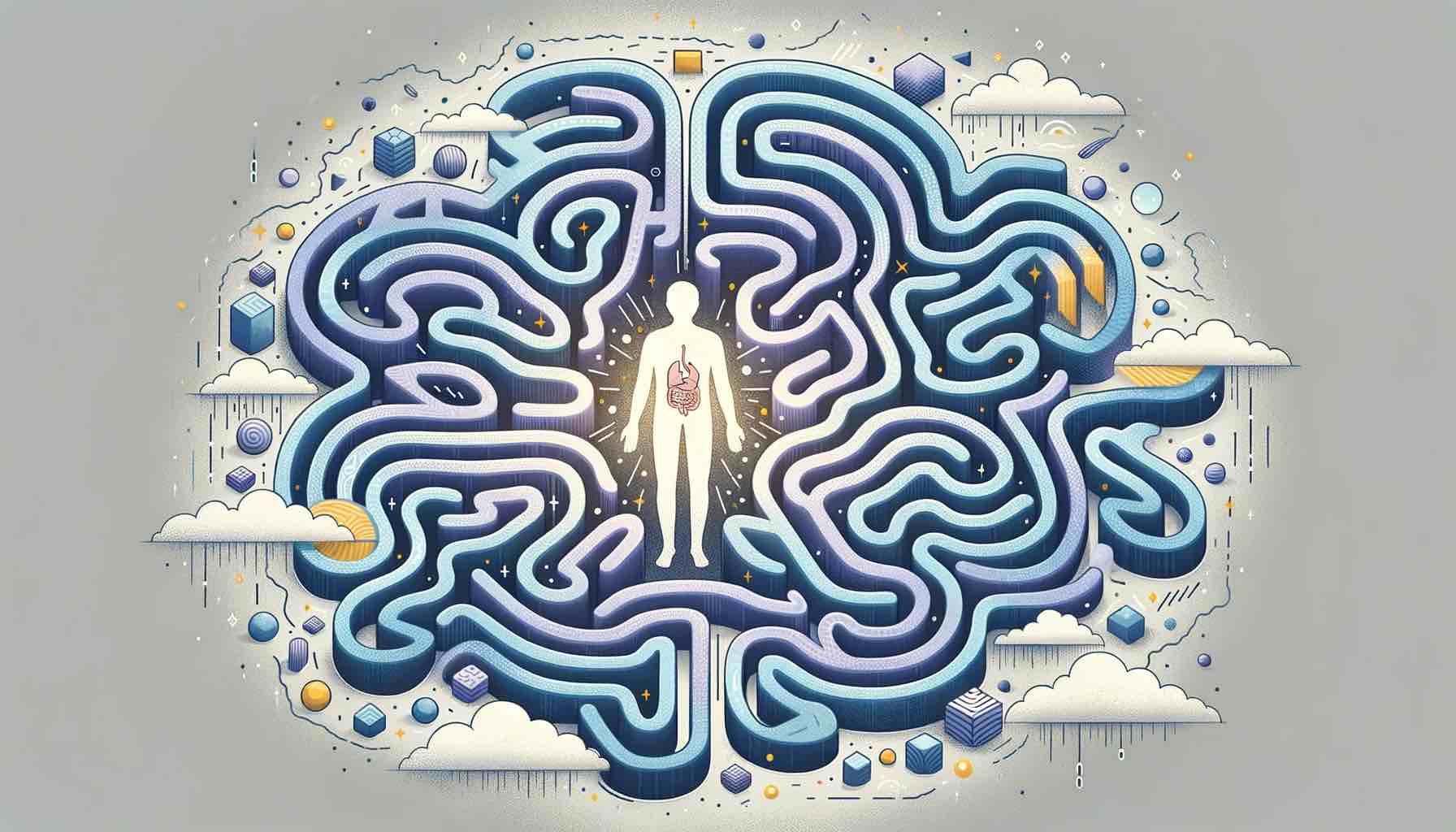
Inflammatory bowel diseases (IBD), including Crohn’s disease and ulcerative colitis, wield a powerful impact not only on the body but also on the mind. Navigating through the unpredictable and tumultuous paths of these conditions often unveils shadows of anxiety and depression, casting a nuanced challenge that demands acknowledgment and care.
The Intertwined Paths of IBD and Mental Health
Living with IBD invariably intertwines with aspects of mental health, creating a landscape marked by various emotional territories. Understanding the depths of this relationship is foundational to carving a path towards holistic healing and well-being.
The Seedbed of Anxiety in IBD
The unpredictable nature of IBD, marked by sudden flare-ups and persistent symptoms, nurtures a fertile ground for anxiety to flourish. From the subtleties of daily adjustments to the overarching uncertainties about the future, anxiety often finds a companion in the journey through IBD.
Depression’s Echo in the Halls of Chronic Illness
Depression, a silent but potent shadow, often walks alongside individuals grappling with IBD. It carries a weight that blankets the spirit, influenced by the chronicity, pain, and fatigue that characterize these inflammatory conditions.
Strategies for Navigating the Mental Labyrinth
Navigating this intricate labyrinth demands strategies that resonate with both the physical and mental realms of IBD.
Exploring Therapeutic Anchors
Various therapeutic modalities, such as Cognitive Behavioral Therapy (CBT) and mindfulness, stand as pillars that offer solace and guidance. These therapies offer a sanctuary of techniques to navigate the turbulent waters of anxiety and depression.
Medications: Allies in Disguise
Medications, including antidepressants and anxiolytics, can serve as valuable allies. Tailored to the individual’s unique journey, medications like SSRIs, including Lexapro, often become integral components of a multi-faceted approach to managing mental health in IBD.
The Nutritional Bridge
Nutrition holds a pivotal role, acting as a bridge between physical health and mental well-being. Aligning dietary practices with the body’s needs and the mind’s well-being can illuminate paths towards improved mood and reduced anxiety.
Cultivating Daily Practices for Mental Resilience
Establishing daily practices imbued with self-care and mindfulness becomes an essential step.
Movement and Mindfulness
Engaging in physical activities and mindfulness practices, such as yoga and meditation, sow seeds of resilience. They foster a space where the mind can find solace, nurturing a sense of balance and calm.
Social Connections: Weaving Webs of Support
Cultivating connections that resonate with understanding and support creates a nurturing environment. Such connections weave a web of shared experiences and empathetic echoes, offering solace in the shared shadows of the journey.
Conclusion: Unveiling Shadows, Illuminating Paths
Walking through the shadows of IBD’s impact on mental health unveils a journey marked by varied terrains. Recognizing and addressing the intertwined paths of anxiety and depression within this journey is crucial. It opens doors to strategies that illuminate paths of resilience, support, and holistic well-being, guiding each step with empathy and understanding. Remember, in the labyrinth of IBD, each step taken is a beacon of resilience, and you’re not alone in this journey.
FAQs
1. What factors contribute to the prevalence of anxiety and depression in individuals with IBD?
Various factors interplay to shape the mental health landscape in individuals with IBD. The unpredictability of symptoms, chronic nature of the disease, and the impact on daily life collectively cultivate a ground where anxiety and depression flourish. Understanding these facets is essential in crafting a holistic approach to managing both the physical and mental aspects of IBD.
2. How can therapeutic interventions be tailored to support mental health in people living with IBD?
Therapeutic interventions, such as Cognitive Behavioral Therapy (CBT) and mindfulness, can be customized to resonate with the unique experiences and challenges faced by individuals with IBD. These therapies offer tools and strategies to navigate the mental terrains of anxiety and depression, fostering resilience and emotional balance.
3. What role do medications play in managing the intertwined paths of IBD and mental health?
Medications play a pivotal role in the crossroads of IBD and mental health. Antidepressants and anxiolytics, such as SSRIs, can be integrated into treatment plans, providing a supportive foundation to manage anxiety and depression symptoms effectively, always considering the personalized needs and health profiles of individuals.
4. How can lifestyle adaptations bolster mental resilience in individuals dealing with IBD?
Lifestyle adaptations hold powerful potential in nurturing mental resilience. Strategies such as engaging in physical activities, cultivating mindfulness practices, and aligning nutritional habits with individual needs and preferences, can significantly influence the mental well-being of those traversing the paths of IBD.
5. What strategies can be employed to cultivate supportive and understanding social environments for individuals with IBD?
Creating social environments imbued with support and understanding involves cultivating open communication, empathy, and shared experiences. Connecting with supportive communities, whether online or offline, and engaging in conversations that resonate with understanding, fosters a nurturing atmosphere conducive to mental and emotional well-being.
Blog Tags
IBD, mental health, anxiety, depression, therapeutic interventions, medications, lifestyle adaptations, social support, resilience, holistic approach








